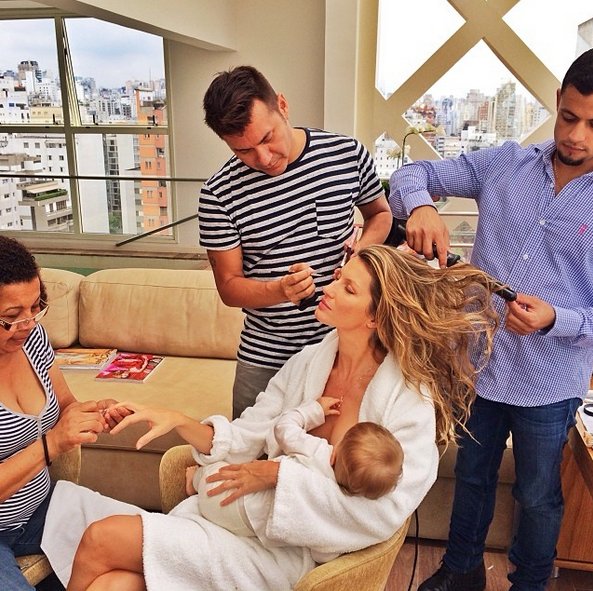"I can help you find someone who is", or "I think there are indicators it's worth getting it checked by someone who is" are a couple that spring to mind.
Unacceptable endings include:
"I don't think there is"
"It's only small and so I wouldn't bother getting it treated"
"The tongue looks to have great movement to me"
"Baby can stick their tongue out so a tie isn't the problem"
"Even if there is treating it wouldn't help"
Because if you're not trained to assess, where do you get off ethically or insurance wise making any sort of recommendation beyond seeing someone who is? "I'm not trained but"doesn't excuse what follows when you are deterring someone from fully exploring their problem.
I'm not trained in appropriate healing of a caesarean scar, therefore should a mum ask me about hers I don't reply "I'm not trained but it looks fine to me, I wouldn't call your midwife"; instead I call for my colleague or refer to an appropriately qualified professional. Similarly should something I observe or hear during our session lead me to have concerns about an area other than mine - I would tell the mum these indicators led me to believe she should speak to her healthcare provider. The risks of not doing so could be significant, what is to be gained by working outside of your remit?
Lactation is no different. Early incorrect advice and support can have long lasting consequences. Whilst it can be easy to think looking at a few pictures and joining a forum does a tongue tie expert make, like most areas it's only when you begin to learn more do you realise how little you may know.
As I've covered before, the ever shrinking NHS budget for lactation - which is all about lip-service and not about practical help is compounding the problem. Some areas don't have anyone trained, so better to take a punt right?
Except someone not appropriately trained might not notice that whilst the baby can protrude with a small mouth, they are unable to do so with the wide gape required to breastfeeding.
They may have no experience of the typical feeding sequence or patterns that babies with a compromised transfer often display - instead telling the mum to feed more frequently, that the baby just "chooses" to eat frequently or that they need try a new hold.
They may not notice the lack of tongue elevation or peristalsis, or know what a normal suck/swallow pattern is. Just this weekend I was told by a couple that their baby had been found to have a very organised sucking pattern with excellent movement. I asked who had diagnosed this and was told it was her breastfeeding worker, who wasn't trained in tongue tie but had a good idea. In fact the baby had a tongue thrust and a disorganised sucking pattern, with virtually no lateral movement and "snap-back"; rendering him unable to maintain a deep latch and regularly falling off entirely. The incorrect diagnosis simply delayed the parents seeking further help for several weeks, confident things would spontaneously resolve if only they could master the "flipple" or some other "advanced latching technique" *cough*.
They may not have the skills to explore why a mum with oversupply has breasts that haven't appropriately regulated. They may misdiagnose a disorganised swallow pattern (which can result in coughing and spluttering) as an oversupply - often with disastrous consequences if what follows is a technique to reduce it.
They may not have the skills to notice a baby is compensating rather than using his mouth, lips and tongue appropriately - and thus is relying on said oversupply for his calories. Nor understand why that shallow latch results in a baby quickly falling asleep - in their ignorance labelling them lazy. They may not have learnt about all the facial nerves and how skilled feeding is sometimes about more than just positioning and attachment.
They may not realise that quality and composition of the baby's stool, is just as important as the frequency in telling us whether baby is taking a balanced feed.
And what happens when people don't realise things? We move from fact to fiction. This was sent to me by several mums yesterday from a Facebook breastfeeding group. I've removed all the details for privacy reasons, but it's a perfect example of what I hear week in and out at my sessions.
There is so much wrong with this that I alternating between head shaking with a few expletives, and wondering where one "breastfeeding consultant" could pull so much bullshit from.
I can safely say that in the 90 hours of education in human lactation and 1000 practice hours undertaken to qualify as an IBCLC, we never covered the "dainty lazy feeder". Nor was it ever covered in any of the massive text books I ploughed through, but that's probably because they're based on science and evidence rather than woo-woo.
I did start to outline all the ways this showed not only ignorance and a lack of understanding about numerous aspects of lactation and attachment to the breast - but I've given up as I simply don't have several hours spare.
Suffice to say if someone tells you "they're not qualified but" - go home and dig out the number of someone who is.



